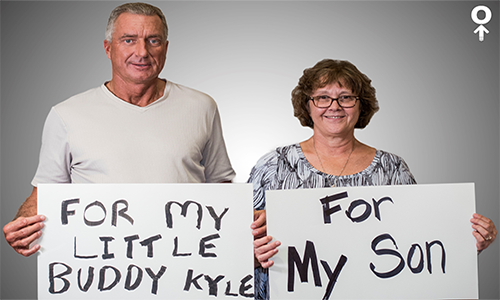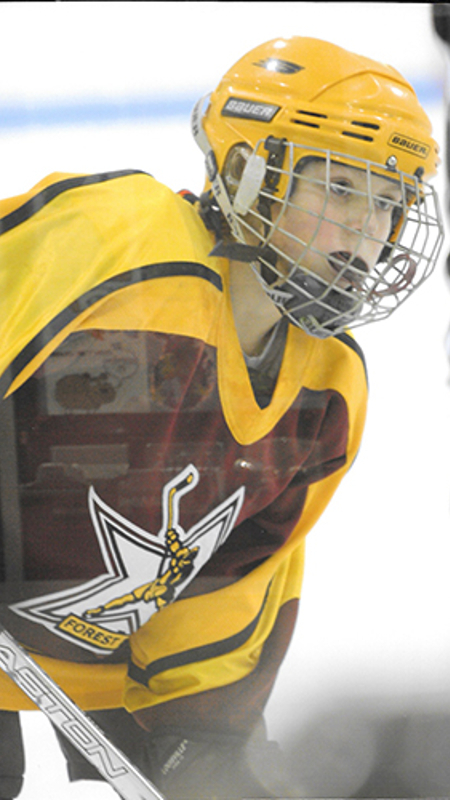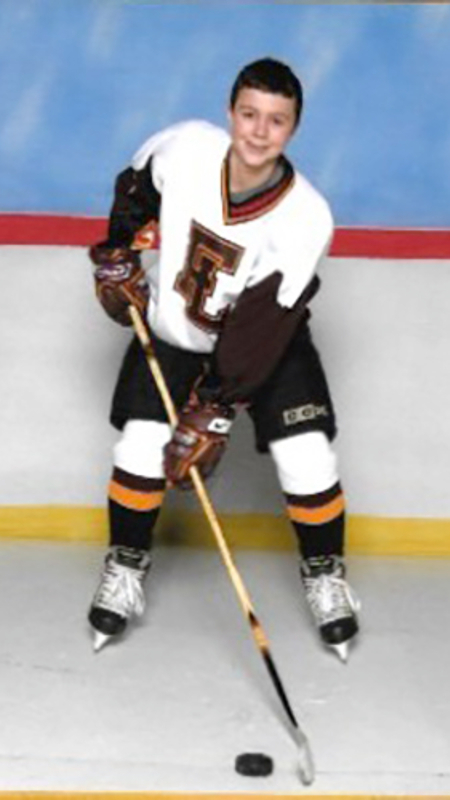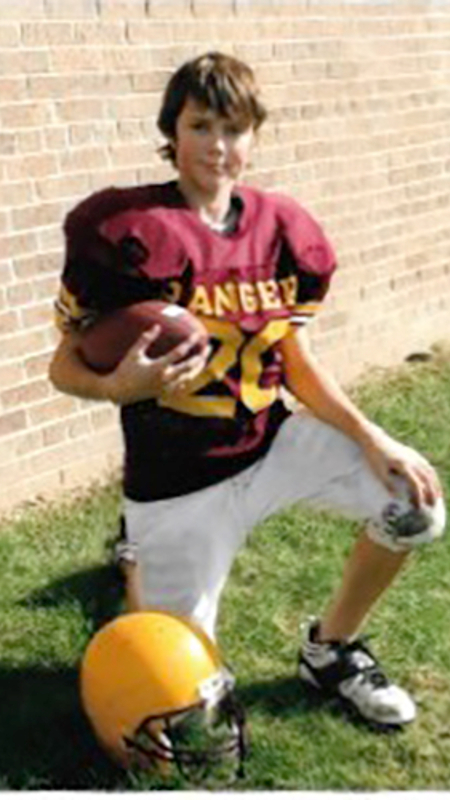Kyle Raarup was a gifted athlete who played hockey, football, and baseball throughout his life. Kyle suffered multiple concussions in these sports, but in eighth grade he suffered two concussions, the second coming shortly after recovering from the first. After this second concussion, Kyle began experiencing severe headaches as well as other intense concussion symptoms and was diagnosed with Post-Concussion Syndrome (PCS). Throughout the rest of his life in high school and college, Kyle struggled with depression, anxiety, memory problems, and other ailments and symptoms related to his injuries. In November of 2015, Kyle took his own life at the age of 20. After his death, researchers at the Boston University CTE Center diagnosed Kyle with stage 1 (of 4) Chronic Traumatic Encephalopathy (CTE).

Kyle loved all sports, all his life. He played as much and as many sports as he possibly could, with football and hockey being his favorites. He was a fiercely competitive and driven athlete. He was naturally gifted with speed, agility, and great eye-hand coordination. He was a running back for football, offensive player in hockey, and could play any position he was put in for baseball. Kyle loved it all and loved the friendships that playing sports offered him.

As it is with any dedicated athlete, Kyle was hit many times with only minor injuries. Concussions, in our mind, happened when you got knocked out from a hit, or got your “bell rung”. As the injuries continued and we became more informed about concussions we realized that Kyle had suffered many minor concussions from about 4th grade on. It wasn’t until Kyle was in 8th grade and experienced a check from behind into the boards in hockey when he started having lasting symptoms that we could not control. He waited the recommended two weeks before playing again, only to be hit from behind again when he returned to play. This time he had such severe headaches and other symptoms that he was unable to return to sports or school. Each bump to his head after that caused increasingly severe symptoms for an extended amount of time.

Over the years of seeing innumerable doctors and other medical professionals, Kyle was diagnosed with post concussive syndrome. While it was nice to have a name for what he was going through, Kyle wanted something that would help his symptoms. This seemed to be an elusive goal. He was a trooper and tried every therapy, testing, medication, vitamin, whatever we could find to try to alleviate the pain and memory/thinking difficulties he was experiencing. None worked well, which was a source of great frustration to Kyle. He wanted his brain to go back to normal.

Kyle was able to attend college where he flourished with the assistance of the student services program that allowed him accommodations for his anxiety and inability to handle a lot of sensory input during testing. Kyle loved college and the friends he made there. He was outgoing, cheerful, energetic, and fun to be around. His continued struggles with his anxiety/depression, memory problems and a new stomach ailment overwhelmed him and he took his life on 11/12/15. His brain was donated to the Boston University CTE study in order to find out the answer to his nagging question “what’s wrong with my brain and why can’t it be fixed?”
In December 2016, we found out that Kyle was diagnosed with Stage I CTE along with some brain abnormalities (micro hemorrhages and hippocampus damage) that helped his family get some answers to that nagging question of “what was going on in his brain?” His suicide and the Boston University brain study has helped raise awareness in our community of the lasting impact that concussions can have on the life of a young adult. The loss of a child, brother and friend to many has hit us all hard and will be something that we struggle with for a long time. We are grateful to the Concussion Legacy Foundation for their research and to finally give us some answers, and for their efforts to continue to find answers for future athletes. Kyle would be proud to be a part of this important research and the continued efforts made to understand the devastating affects concussions have on young lives.
We miss him every day, but are proud of who Kyle was and how he has helped us and others understand mental illness and concussions.
Watch: Kyle’s Story: Minnesota Family Raising Awareness About CTE

